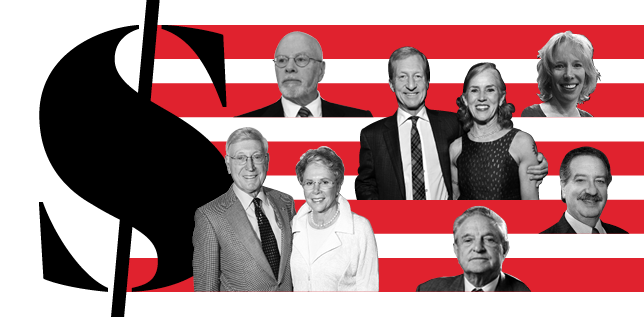Disregard president Donald Trump’s campaign promises to “drain the swamp”: Washington, D.C., and the national electoral system is awash in special interest money. In the nation’s capital, much of that money comes from lobbyists who see an administration that is not only heavily populated with lobbyists, but also receptive to their advances. It’s ironic: While there was a dramatic decline in the number of registered lobbyists during the Obama years, thanks in part to the elimination of earmarking from bills, their numbers have recovered since 2016, topping 11,000 at the end of the second quarter of 2019, according to the nonpartisan Center for Responsive Politics. President Trump has hired seven former lobbyists to serve as members of his cabinet, more than the total hired by Obama and George W. Bush combined.
Of course, the full impact of lobbyists has to include the dollars spent by corporations and groups ranging from Boeing, Facebook and Amazon to the U.S. Chamber of Commerce and the American Medical Association. These companies and organizations pour millions of dollars into Washington—money that is becoming harder and harder to track. Increasingly, organizations that want to buy influence in D.C. are investing in “shadow lobbyists,” people who may not fit the legal definition of a lobbyist but essentially serve the same function. They could be people who either deregister as lobbyists but keep positions at their firms or former members of Congress who bill themselves as “strategic advisors.”

“The law only requires very specific kinds of activity before the Congress to be reported,” Tufts University political science professor Jeffrey M. Berry told the Center for Responsive Politics. “The reasons why people don’t register are they prefer not to have their names reported, or they just feel it’s not required by the law.”
But influence-buying through lobbying is only one side of the coin. On the electoral side, there are more rigorous rules governing the disclosure of political expenditures, and because of them we can identify the biggest individual spenders in the lead-up to the 2020 general election. These wealthy individuals influence who gets on ballots, which issues those candidates support and which issues voters care about. Here are the 10 biggest political spenders of 2019 (as of August, the most recent period for which data is available), ranked in order of their combined hard and soft money donations.







